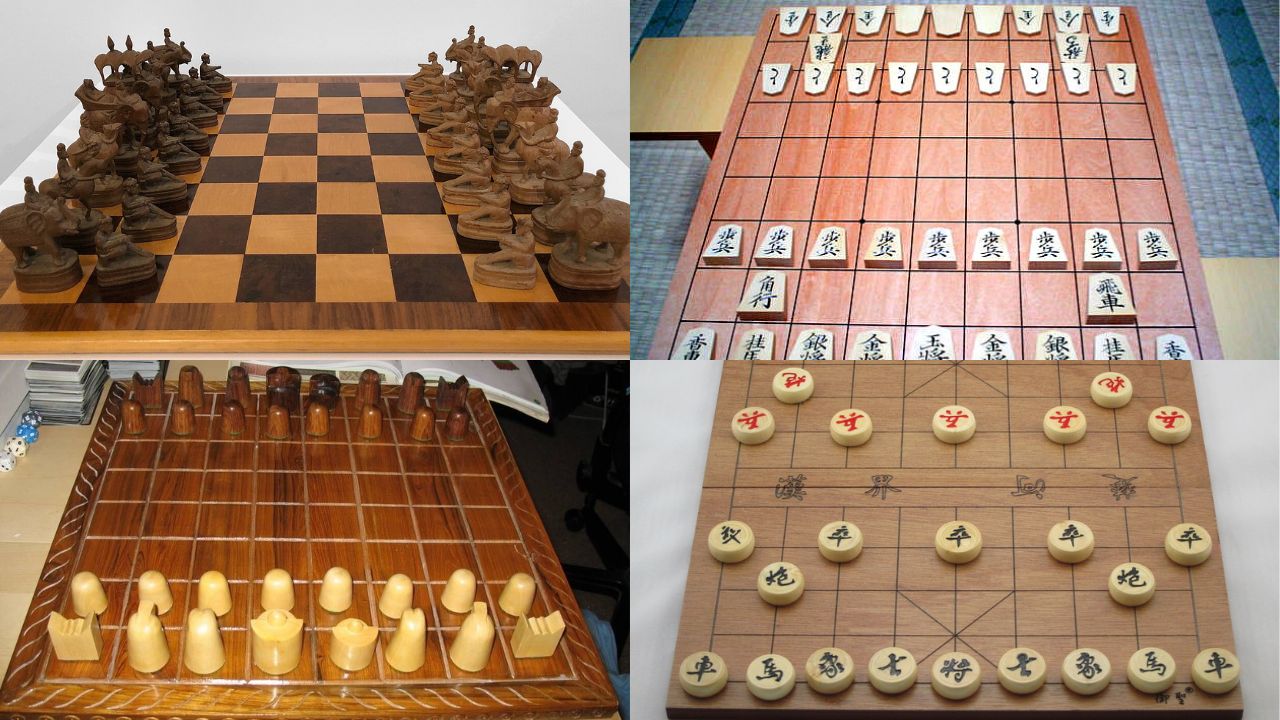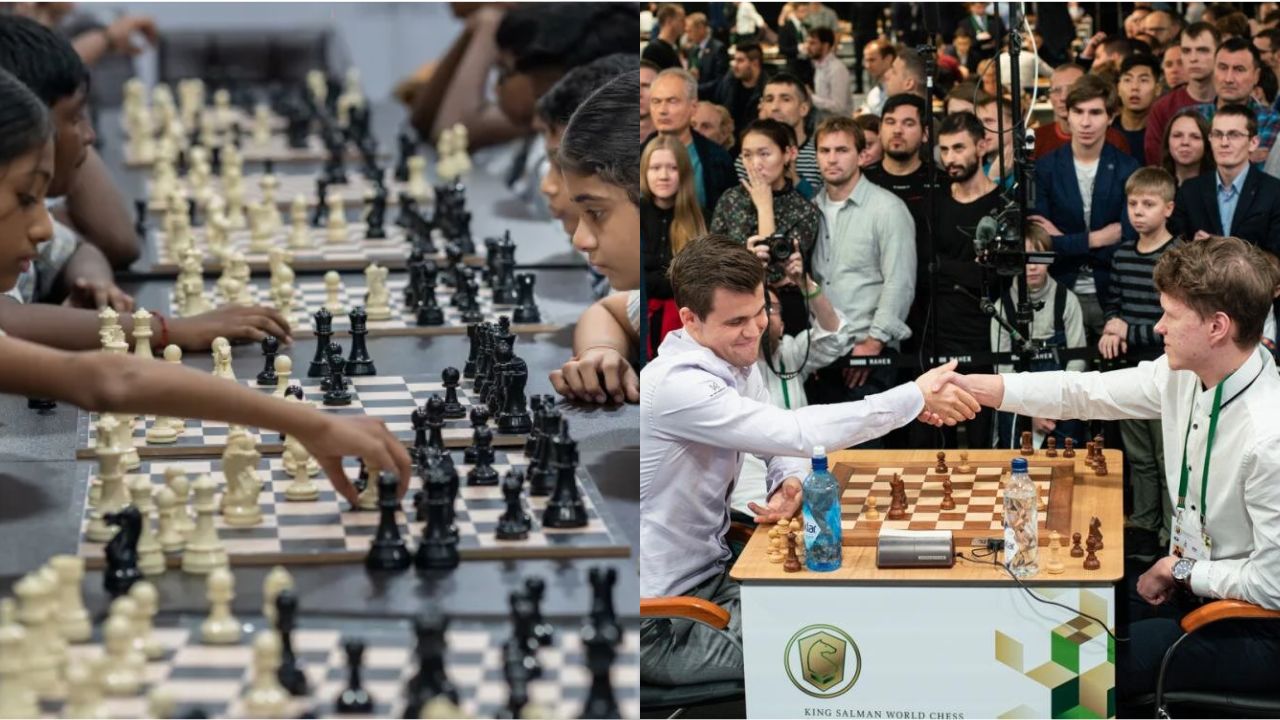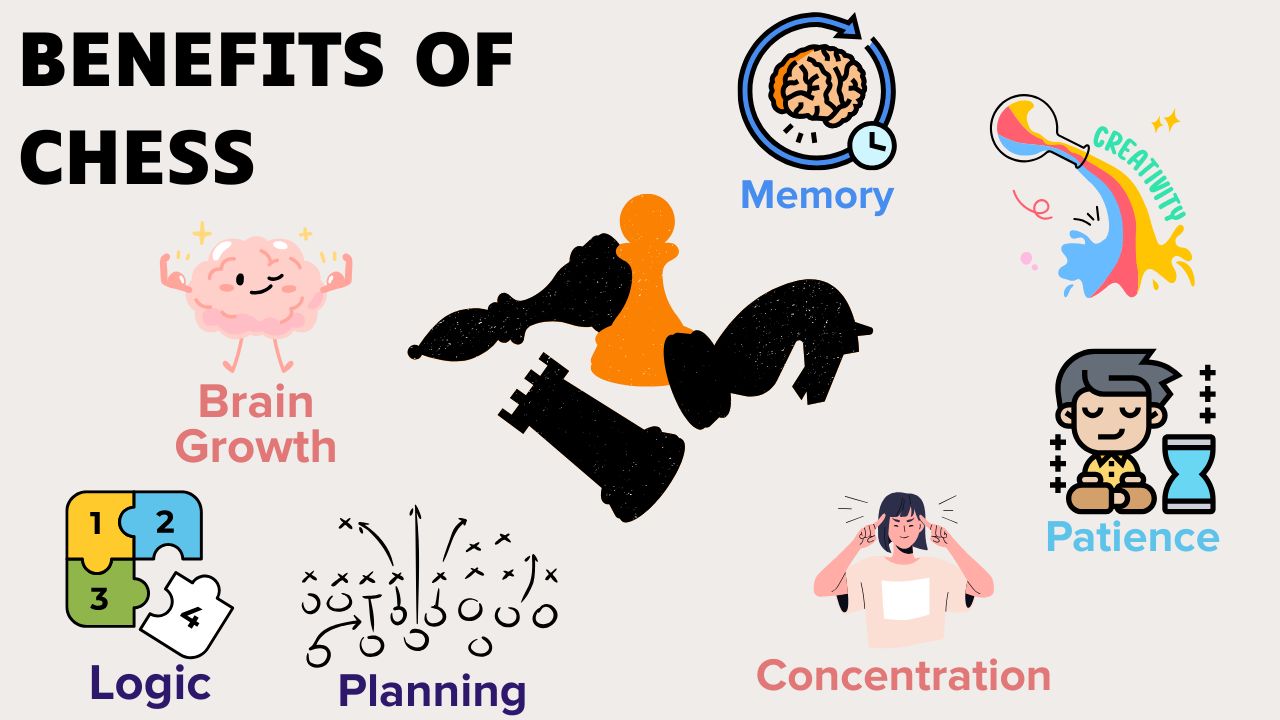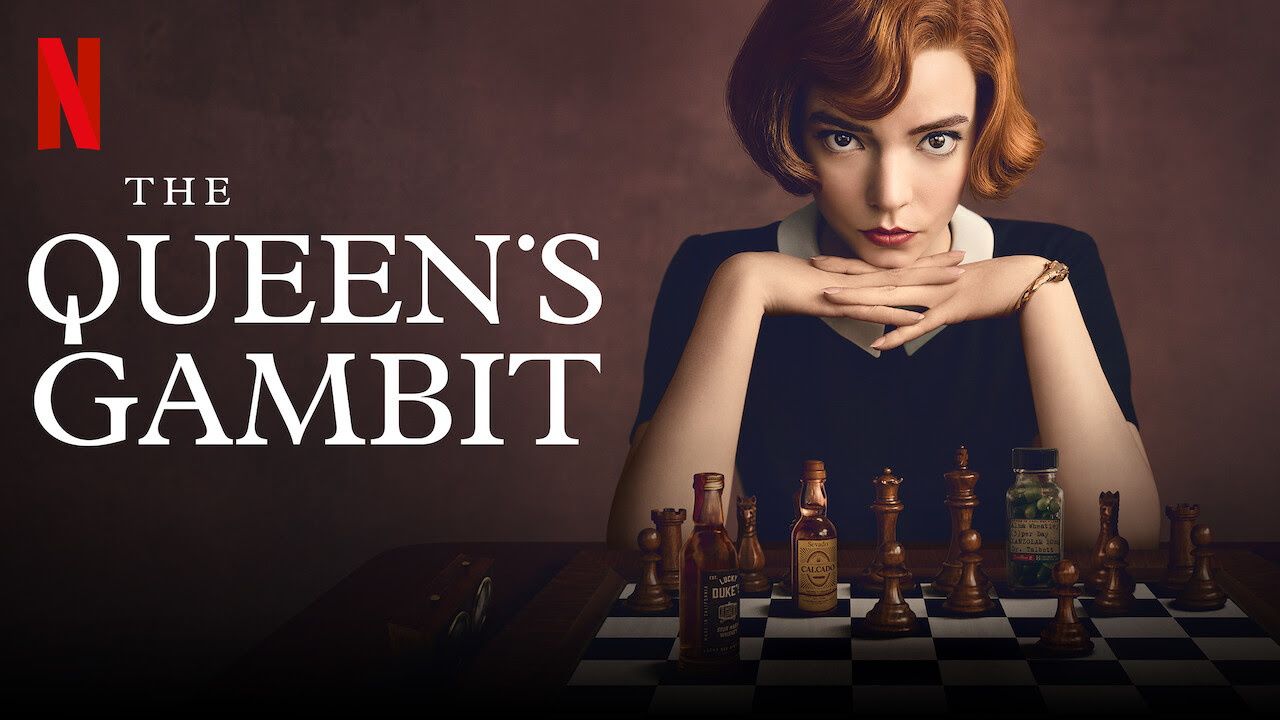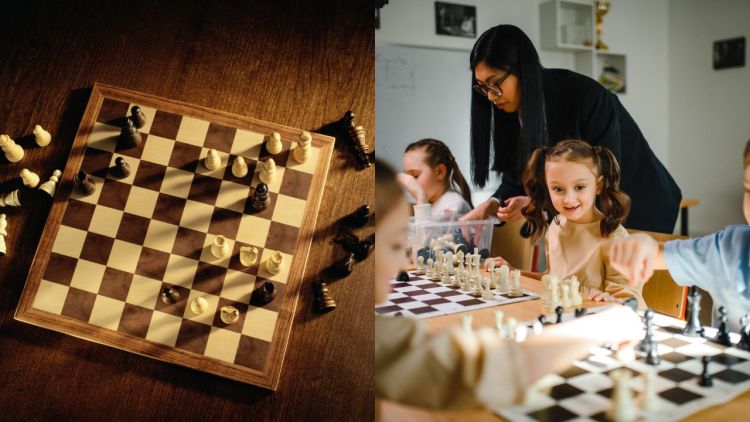
Few games in history have achieved the universal appeal of chess. From ancient royal courts to modern smartphones, this timeless game has captivated minds across cultures and generations. Its unique blend of strategy, creativity, and mental discipline continues to inspire players, whether they are competing in world championships or enjoying casual games at local cafes. But what makes chess so enduringly popular around the globe? And why, even in an age dominated by fast entertainment and digital distractions, does this classic game not only survive but thrive? This article explores the cultural, historical, and psychological factors that explain chess’s remarkable staying power.
ADVERTISEMENTS
Ancient Roots: How Chess Was Born and Why It Endures
The origins of chess are as fascinating as the game itself. Tracing back nearly 1,500 years, chess began as chaturanga in India, a game designed to mirror the complexities of ancient warfare. It travelled along trade routes, evolving into shatranj in Persia, then spreading to the Arab world and medieval Europe. Each culture left its imprint, from the rules and piece movements to the symbolism embedded in the game. Over centuries, chess transformed from a pastime of nobles into a universal language understood across borders.
So why has chess survived when countless other games have been forgotten? Part of its longevity lies in its perfect balance between simplicity and depth. The basic rules can be learned in an afternoon, yet mastering the game is a lifelong endeavor. This duality allows chess to appeal equally to beginners and grandmasters, keeping generations engaged.
Moreover, chess has always reflected the intellectual and cultural aspirations of society. In medieval Europe, it became a symbol of strategy and power among the elite. During the Cold War, it was a proxy battlefield between superpowers. Today, it serves as both a mental sport and a tool for education worldwide.
ADVERTISEMENTS
A Global Phenomenon: How Chess Captivated the World
Chess’s transformation into a global phenomenon is a testament to its adaptability and universal appeal. From the bustling squares of Moscow to the quiet libraries of New York, from competitive arenas in Chennai to community parks in Paris, chess thrives in every corner of the world. The game transcends language barriers, offering a shared experience that connects people regardless of culture or geography.
The rise of international tournaments and world championships further cemented chess’s status. Figures like Garry Kasparov, Bobby Fischer, and Magnus Carlsen became cultural icons, their games followed by millions. National chess federations, school programs, and grassroots initiatives have ensured that new generations continue to embrace the game.
In countries like India and China, chess has seen explosive growth in recent decades. Nations with deep historic ties to the game, such as Russia and Armenia, continue to produce world-class players. Meanwhile, online platforms have brought chess to regions where access to coaches and clubs was once limited, democratizing the game on an unprecedented scale.
Chess’s global appeal lies in its ability to adapt to different cultural contexts. It is as much at home in a high-stakes international championship as it is in a small-town cafe or a school classroom. Its universality has made it not just a pastime but a cultural bridge and a symbol of intellectual engagement worldwide.
ADVERTISEMENTS
The Chess Renaissance in the Digital Age
The rise of technology has breathed new life into chess, sparking what many call a global chess renaissance. Online platforms like Chess.com and Lichess have brought millions of players together, making it possible to challenge opponents from any part of the world at any time of day. This digital transformation has made the game more accessible than ever before, appealing to both seasoned veterans and complete beginners.
Streaming platforms like Twitch and YouTube have also played a significant role. Chess streamers, including grandmasters and influencers, have attracted huge audiences by combining entertainment with education. Events like PogChamps, which featured celebrities and internet personalities competing in chess tournaments, brought the game to an entirely new demographic and demonstrated its cultural relevance in the 21st century.
Perhaps most transformative of all has been the shift in how players learn and improve. Gone are the days when one had to rely solely on books or local clubs for training. Today, many aspiring players turn to chess online coaching, where they can work with experienced trainers across continents. This method offers personalized feedback and a structured learning plan, giving students tools to overcome plateaus and develop their skills faster than traditional self-study.
ADVERTISEMENTS
Mental and Educational Benefits of Chess
Beyond its cultural and entertainment value, chess has earned recognition as a powerful tool for cognitive development. Numerous studies have highlighted its benefits for critical thinking, problem-solving, and memory. Educators in countries like the United States, Spain, and Armenia have integrated chess into school curricula, believing it fosters intellectual growth in children.
Chess also helps develop patience and emotional resilience. Players learn to analyze situations deeply, weigh multiple options, and accept the consequences of their decisions — valuable life skills that extend far beyond the 64 squares of the board.
Even for adults, chess remains a mental workout. It sharpens focus and encourages lifelong learning, making it an ideal pursuit for maintaining cognitive health in later years. It’s no wonder so many professionals, from engineers to artists, credit the game with enhancing their strategic thinking abilities.
- Improved concentration and focus during complex tasks
- Better planning and decision-making skills in everyday life
- Enhanced memory and pattern recognition through regular practice
- Development of patience and emotional control under pressure
These advantages underscore why chess is not just a pastime but an educational and psychological asset for players of all ages and backgrounds.
ADVERTISEMENTS
The Social and Cultural Dimensions of Chess
Chess is far more than a mental sport; it’s a cultural phenomenon that bridges generations, geographies, and social boundaries. Across the world, chess serves as a common language that unites people from vastly different backgrounds. In parks and cafes, in schools and universities, the familiar sight of a chessboard brings together students, retirees, professionals, and hobbyists in a shared intellectual challenge.
The portrayal of chess in popular culture has also contributed to its widespread appeal. Films, books, and television series such as The Queen’s Gambit have sparked surges of interest, especially among audiences who might not have considered playing before. These cultural touchpoints show chess as a game of intrigue, drama, and artistry — a far cry from the outdated stereotype of chess as dry or overly academic.
Social media has amplified these effects. Viral moments, memes, and clips of brilliant tactical plays circulate widely, making chess part of online conversations. Even professional tournaments now attract global audiences in the millions, with live commentary and analysis accessible to anyone with an internet connection.
This social and cultural relevance explains why chess continues to flourish, reaching demographics previously untouched by the game and solidifying its place as a global pastime.
ADVERTISEMENTS
How Chess Teaches Persistence and Life Skills
Success in chess requires more than memorizing openings or learning tactical motifs. It demands patience, critical thinking, and the ability to recover from setbacks. These qualities make chess a powerful metaphor for life and a training ground for personal growth.
Players at every level must confront losses, analyze their mistakes, and return stronger. This cycle mirrors the challenges of real-world problem-solving, where resilience and adaptability often determine success. As such, many leaders in business and politics credit chess with honing their strategic decision-making and mental fortitude.
When aspiring players wonder how to get good at chess, the answer often lies not in shortcuts or hacks but in building habits of disciplined study, reflection, and incremental improvement. Consistency, guided practice, and a willingness to embrace complexity are what separate casual enthusiasts from serious competitors.
- Learning to approach challenges systematically instead of impulsively
- Developing emotional control in high-stress situations
- Improving strategic foresight by analyzing multiple outcomes
- Cultivating a mindset of continuous learning and self-improvement
These lessons, embedded within the practice of chess, carry over into academic pursuits, careers, and personal relationships, making the game a lifelong teacher far beyond its black-and-white board.
Why Chess Will Remain Popular for Generations to Come
The enduring popularity of chess is not simply a historical accident or a passing trend. Its ability to evolve with the times has been central to its survival. From wooden boards in medieval castles to sleek digital interfaces on smartphones, chess has proven remarkably adaptable to changes in technology and culture. This flexibility ensures that it remains relevant even as the world around it shifts dramatically.
One reason chess continues to thrive is its accessibility. Unlike many sports or hobbies, chess requires minimal equipment and can be enjoyed anywhere. All that’s needed is a board, or even a mobile app, and a willingness to think deeply. This low barrier to entry has made it popular across all socioeconomic backgrounds and age groups.
Another factor is its infinite depth. No two games are ever the same, and even after centuries of play, new ideas and strategies are still being discovered. This inexhaustible complexity keeps the game fresh and challenges even the most experienced players to continue learning.
- Continuous innovation through online platforms and AI-driven analysis tools
- A global community fostering inclusivity and cross-cultural exchange
- The timeless appeal of testing one’s intellect against an opponent
- The balance of logic, creativity, and psychological skill in every match
As long as humans value strategy, competition, and the joy of intellectual discovery, chess will hold a special place in our culture. It is not merely a relic of the past but a living, breathing tradition that continues to inspire new generations of players.
Conclusion: A Game for All Time
Chess has transcended its origins to become a universal symbol of strategic thinking and personal growth. Its cultural significance, cognitive benefits, and adaptability to modern technology have cemented its status as more than just a game. It is a discipline, an art form, and a meeting ground for minds around the world.
Whether played in the park with friends, studied intensively with a coach, or enjoyed through digital platforms, chess continues to captivate millions. Its lessons extend far beyond the 64 squares, shaping the way we approach challenges and think about the world. This enduring relevance ensures that chess will remain not only popular but essential for generations to come.
